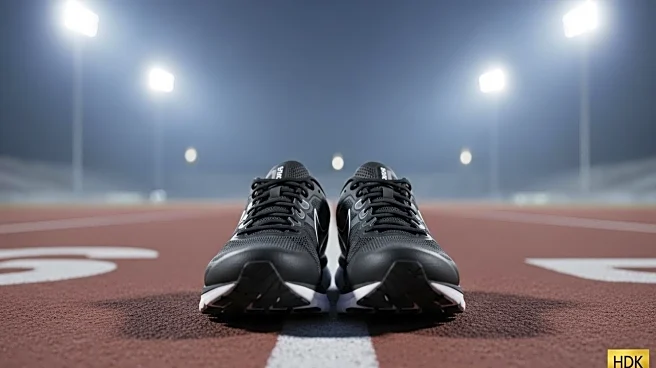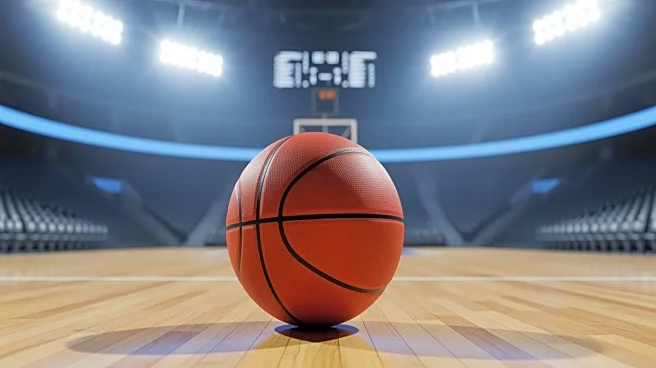What's Happening?
Eilish McColgan, a renowned British middle- and long-distance runner, is transitioning from track events to marathons, having recently completed her first marathon at the London Marathon. She is considering participating in the New York City Marathon, known for its competitive field and lack of pacemakers. McColgan is also preparing for the Great North Run half-marathon, focusing on speed training. Throughout her career, she has gathered valuable tips for runners, emphasizing the importance of proper footwear, structured training plans, fueling during long runs, and prioritizing recovery. McColgan advocates for cross-training to minimize injury risks and highlights the mental benefits of running.
Why It's Important?
McColgan's transition to marathon running and her insights are significant for both amateur and professional runners. Her advice on training, recovery, and mental health can help runners improve their performance and well-being. Her emphasis on flexibility and fitting running into one's lifestyle is particularly relevant for busy individuals, including working parents. McColgan's experiences and tips can inspire more people to take up running, promoting physical fitness and mental health. Her approach to handling online criticism also offers a positive message about body image and self-confidence.
What's Next?
McColgan's potential participation in the New York City Marathon could further elevate her profile in the marathon community. Her ongoing involvement in running events and her role as an ASICS ambassador may lead to more opportunities to influence and inspire runners globally. As she continues to share her experiences and tips, McColgan may contribute to broader discussions on the accessibility and inclusivity of running as a sport.
Beyond the Headlines
McColgan's journey highlights the evolving nature of athletic careers, where athletes can successfully transition between different types of events. Her focus on mental health and the therapeutic aspects of running underscores the growing recognition of sports as a tool for mental well-being. Additionally, her stance against online trolling and body shaming reflects broader societal issues related to social media and self-image.









